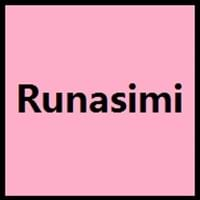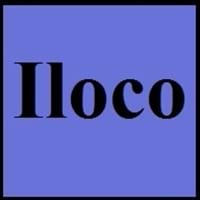Quechua and Ilocano
Countries
Argentina, Bolivia, Chile, Colombia, Ecuador, Peru
Philippines
National Language
Bolivia, Ecuador, Peru
Philippines
Second Language
Not spoken in any of the countries
Not spoken in any of the countries
Speaking Continents
South America
Asia
Minority Language
Not spoken in any of the countries
Not spoken in any of the countries
Regulated By
Not Available
Commission on the Filipino Language
Interesting Facts
- One of the most widely spoken indigenous language in the America is Quechua.
- Quechua language has borrowed many words from Spanish.
- Ilocano was originally written with Baybayin syllabary, then gradually it was replaced by Latin alphabet.
- Northwest Luzon is the original Ilocano homeland.
Similar To
Not Available
Tagalog, Indonesian and Malaysian Languages
Derived From
Not Available
Not Available
Alphabets in
Quechua-Alphabets.jpg#200
Ilocano-Alphabets.jpg#200
Scripts
Latin
Ilokano Braille, Latin
Writing Direction
Not Available
Not Available
Language Levels
Not Available
Time Taken to Learn
Not Available
Hello
Rimaykullayki
Kablaaw
Thank You
Solpayki
Agyamanak
How Are You?
Allillanchu
Kumusta?
Good Night
Allin tuta
Naimbag a rabii
Good Evening
Wuynas nuchis
Naimbag a sardam
Good Afternoon
Wuynas tardis
Naimbag a malem
Good Morning
Wuynus diyas
Naimbag a bigat
Please
Not Available
Not available
Sorry
Pampachaykuway
Agpakawanak
I Love You
Kuyayki
Ayayatenka
Excuse Me
Pampachaway
Maawan-dayawen
Dialect 1
Ancash
Balangao
Where They Speak
Peru
Philippines
Where They Speak
Peru
Philippines
Dialect 3
Yaru
Not present
Where They Speak
Peru
Not present
How Many People Speak
Not Available
Native Name
Qhichwa
ilokano
Alternative Names
North La Paz Quechua
Ilokano, Iloko
French Name
quechua
ilocano
German Name
Quechua-Sprache
Ilokano-Sprache
Pronunciation
Not Available
Not Available
Ethnicity
Quechua
Ilocano people
Origin
16th Century
18th Century
Language Family
Quechumaran Family
Austronesian Family
Subgroup
Andean Equatorial
Not Available
Branch
Not Available
Not Available
Early Forms
No early forms
No early forms
Standard Forms
Quechua
Modern Ilocano
Language Position
Not Available
Signed Forms
Not Available
Not Available
Scope
Macrolanguage
Individual
ISO 639 1
qu
No data available
ISO 639 6
Not Available
Not Available
Glottocode
quec1387
ilok1237
Linguasphere
No data Available
31-CBA-a
Language Type
Living
Living
Language Linguistic Typology
Not Available
Not Available
Language Morphological Typology
Agglutinative, Synthetic
Not Available
All Quechua and Ilocano Dialects
Most languages have dialects where each dialect differ from other dialect with respect to grammar and vocabulary. Here you will get to know all Quechua and Ilocano dialects. Various dialects of Quechua and Ilocano language differ in their pronunciations and words. Dialects of Quechua are spoken in different Quechua Speaking Countries whereas Ilocano Dialects are spoken in different Ilocano speaking countries. Also the number of people speaking Quechua vs Ilocano Dialects varies from few thousands to many millions. Some of the Quechua dialects include: Ancash, Huánuco. Ilocano dialects include: Balangao , Bontoc. Also learn about dialects in South American Languages and North American Languages.
Quechua and Ilocano Speaking population
Quechua and Ilocano speaking population is one of the factors based on which Quechua and Ilocano languages can be compared. The total count of Quechua and Ilocano Speaking population in percentage is also given. The percentage of people speaking Quechua language is 0.13 % whereas the percentage of people speaking Ilocano language is 0.14 %. When we compare the speaking population of any two languages we get to know which of two languages is more popular. Find more details about how many people speak Quechua and Ilocano on Quechua vs Ilocano where you will get native speakers, speaking population in percentage and native names.
Quechua and Ilocano Language Codes
Quechua and Ilocano language codes are used in those applications where using language names are tedious. Quechua and Ilocano Language Codes include all the international language codes, glottocodes and linguasphere.





